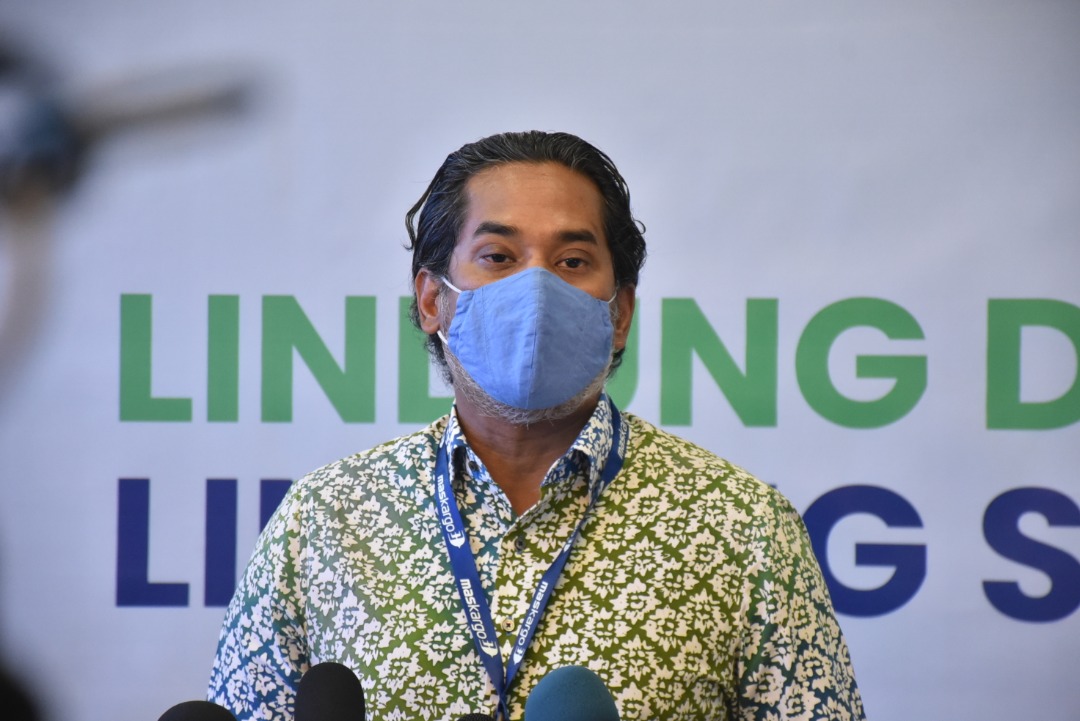KUALA LUMPUR, March 25 — The government is considering granting certain liberties to Malaysians fully vaccinated against Covid-19 once more people get jabs in the second phase of the rollout, Khairy Jamaluddin said.
The vaccine minister cited possible freedoms like travelling interstate or abroad and less stringent quarantine arrangements, after over a year of movement restrictions since the Covid-19 pandemic hit Malaysia in January last year.
“For instance, if they go abroad and come back, they may not have to be quarantined. They may be free to just resume daily life,” Khairy told CodeBlue in an exclusive interview yesterday.
“So there are discussions in place about certain freedoms that you may be able to enjoy once you’ve been vaccinated.”
He added that the government is looking at allowing people who have received complete coronavirus inoculation with two doses to cross state borders in Malaysia, once “enough” people are vaccinated in Phase Two of the national vaccine rollout.
“I think if we allow it now, there will be some concerns of vaccine inequity since only frontliners were given the vaccine. Once Phase Two is open and more of the general population are allowed to be vaccinated, then we can make the case for that. That’s certainly something we’re considering.”
Guidelines by the United States’ Centers for Disease Control and Prevention (CDC) allow fully vaccinated people to gather indoors with unvaccinated people from another household without face masks. The CDC also permits those who have completed their coronavirus shots to skip self-isolation or testing upon exposure to a positive Covid-19 case, unless they have symptoms and unless they live in a group setting like a group home or detention facility.
However, the CDC also maintains that people should continue to practice health measures in public places even after full Covid-19 vaccination, such as wearing a face mask, physical distancing of at least one metre, and avoiding crowds and poorly ventilated spaces.
When asked if the government could tie coronavirus vaccination or vaccine registrations to cash incentives, Khairy said: “We’re still thinking about that because there’s an ethical angle to that on people who are still reluctant, people who may not be able to be vaccinated.”
Last year, the government gave Malaysians RM50 eWallet credit for downloading the MySejahtera app.
Khairy told CodeBlue he would likely announce next Monday the start date for Phase Two of the national Covid-19 vaccination programme. Phase Two, he said, won’t just prioritise high-risk groups like the elderly or people with underlying health conditions, but also frontline workers from crucial economic sectors and anyone, regardless of risk levels, who has already signed up on MySejahtera for jabs.
Malaysians who live in Johor and need to commute daily to Singapore for work may also get prioritised for Covid-19 vaccination from April.
When asked about a possible drop in Covid-19 vaccination rates during month-long Ramadan from mid-April, Khairy acknowledged that the government does foresee some reluctance to get shots during the Muslim fasting month.
“One is because, notwithstanding the religious [affairs] minister saying it’s permissible, some people may, on their own accord, choose not to get vaccinated during the fasting month, or at least during daylight. And some people may be concerned about side effects.”
The science, technology and innovation minister said vaccination centres may be opened in the evening or at night to address this issue.
According to Khairy, the Covid-19 Immunisation Task Force (CITF) is still finalising the list of vaccination sites (PPV), currently numbering at 1,400 nationwide. These range from smaller PPV in villages that can administer shots to a few hundred people daily to mega PPV in cities, of which the biggest one is simulated to vaccinate about 8,000 people a day.
The country’s biggest PPV, he said, will likely be located at the Bukit Jalil National Stadium in Kuala Lumpur, where a marquee tent and 80 vaccine stations can be set up in the carpark. Each vaccine station is estimated to jab 10 people per hour (in some states, efficient nurses clear 15 people), leading to 100 people per day in a 10-hour shift.
Khairy expressed hopes of increasing shots-to-the-arm in excess of 100,000 towards 160,000 daily by Phase Three of the vaccine rollout, either the end of May or June.
“It’s a rolling target at the moment because we have to take into account the vaccine delivery schedule, the registration, the opening up of the PPVs or vaccination centres,” he said, when asked about CITF’s daily shots-to-the-arm target in April, May, and June.
“At the moment, we’re still waiting for the delivery schedule from AstraZeneca as well as Sinovac, which has yet to get regulatory approval for their factory in Puchong. Once we have those details in place, then we’ll have a better idea of the daily rate of vaccinations for April, May and June.”








